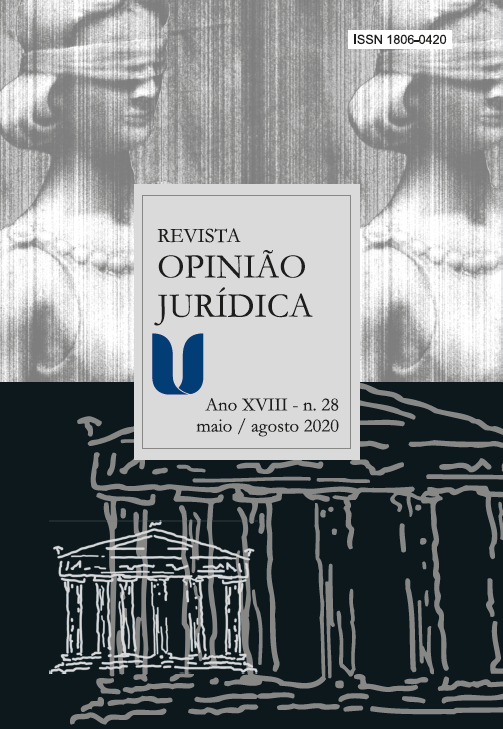NOTES ON FEENBERG’S RELEASE ON THE CRITICAL THEORY OF TECHNOLOGY: A PROPOSAL FOR THE DEMOCRATIZATION OF TECHNOLOGICAL DEVELOPMENT IN THE DIGITAL SPHERE AS A PREMISE FOR DEMOCRATIC TRANSFORMATIONS
DOI:
https://doi.org/10.12662/2447-6641oj.v18i28.p13-42.2020Keywords:
Democracy, Industrial Society, Critical Theory, TechnologyAbstract
The study of this research comprises the technology and its democratic possibilities, integrated to a debate on theories of democracy. Technology, in modernity, is seen as an instrument with which the agent communicates with his environment, and the critical theories developed that embrace it depart from two paths: that its potentiality is a mean of domination or that is capacity is neutral, based on its inherent scientific rationality. Democracy aims to integrate the interests of all, and from that, direct decision-making. The factor is complex, however, a compound is perennial: the manifestation and conveyance of an interest is a presupposition for such interest to be part of the political and legal system of society. It was intended to respond to the problem expressed as follows: is technological development limited to the terms of the instrumentalist and substantialist currents of technology in view of contemporary democratic plurality? Considering the relations of contemporary industrial society, technology possesses democratic impulses, once thinking it and integrating in its development the particularities of each person or group of people, as a means to enhance its content and its effects on society. The inclusion of people with disabilities in the digital sphere needs to be architected, as it encounters serious impediments, analogous to the physical sphere. The method of approach used was the hermeneutic one, starting from premises that consubstantiate in the problem. The procedure method used was the monographic and the research technique, bibliographical.
Published
How to Cite
Issue
Section
License
CESSION OF COPYRIGHTS
The submission of articles to analysis for publication on Opinião Jurídica implies the author(s) transfers copyrights to Centro Universitário Christus – UNICHRISTUS for reproduction, publicizing, distribution, printing and publication, according to the Publication Norm 414R, Opin. Jur., Fortaleza, year 12, n. 16, p.1-414, Jan./Dec. 2014, costs to be bore by UNICHRISTUS, in whatever format or means that may or shall exist, in accordance to articles 49 and following of Federal Law 9.610/98.
1. In ceding copyrights, the author(s) agrees to do so in exclusivity, free of charge and for the totality of the work.
2. UNICHRISTUS may make the work, in its entirety or in parts, available for scholarly purposes, without altering its contents, except for small corrections that are deemed necessary.
3. The cession of copyrights is valid in all countries and for versions of the material in its original language or translated into a foreign language.
RESPONSIBILITY FOR THE CONTENT
By submitting an article, the author(s) declare to have sole responsibility for the content of the piece and is(are), therefore, responsible for any judicial or extrajudicial measures referring to it.
1. In case of joint authorship, all authors are considered collectively responsible, except when proved otherwise.



















